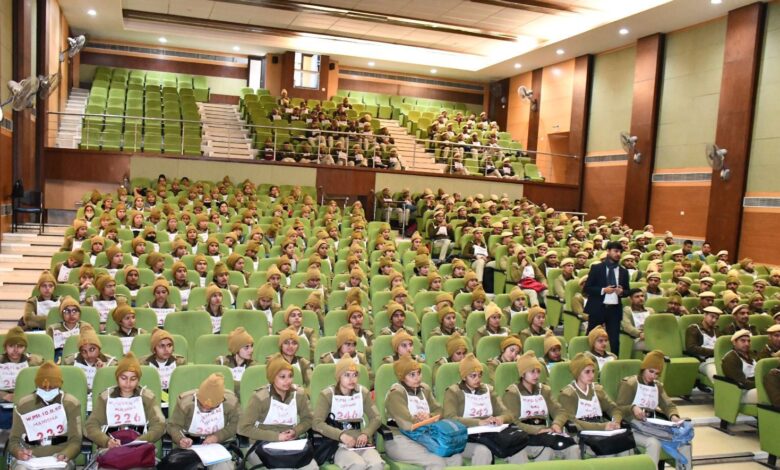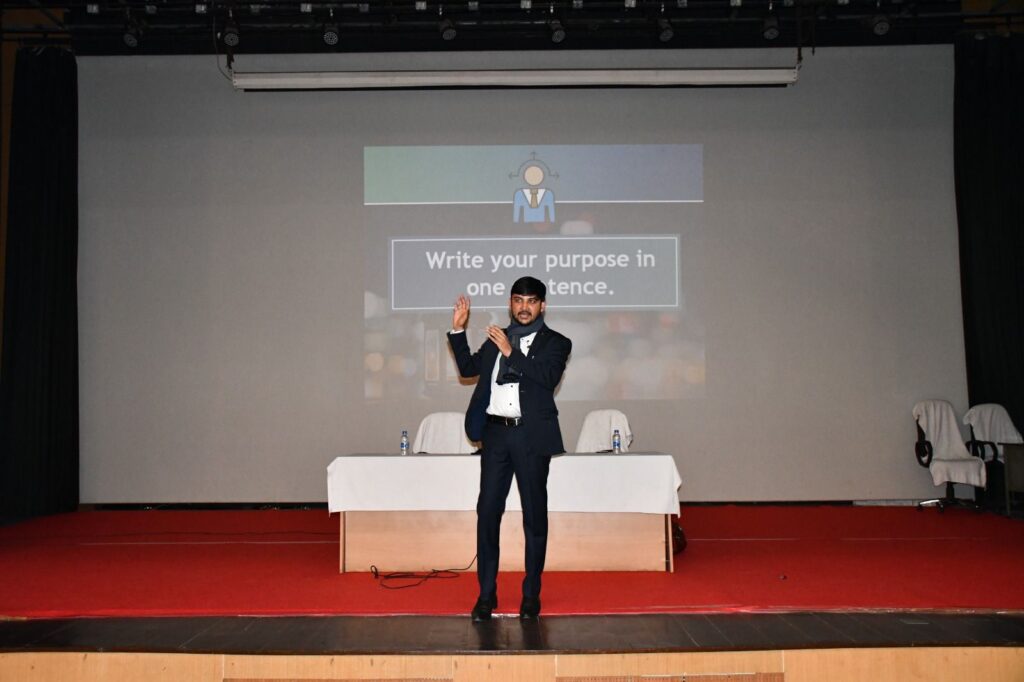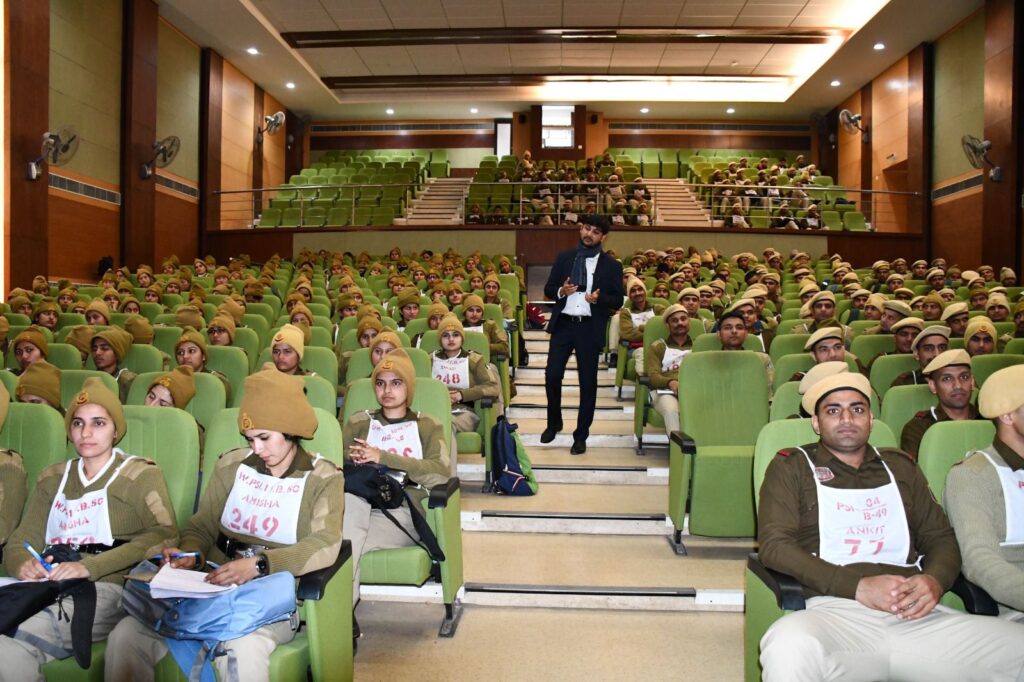Delhi Police gets taste of IIM Indore training
Naveen Krishna Rai of IIM Indore conducts management training sessions on self-management at Delhi Police Academy

A training session on self-management and people management for sub-inspectors of the 49th and 50th batches of the Delhi Police was held at the Delhi Police Academy in Jharonda Kala, New Delhi. This session was a part of their initial training program.
Naveen Krishna Rai, Manager, Government Affairs, IIM Indore, was the resource person and facilitator for the session. He explained to the participants the essentials of self-management and people management through various principles of management and psychology. Talking about self-management, he referred to Seligman’s ‘PERMA Model of Happiness and Well-Being,” which talks about five components of a person’s life that are pathways to one’s well-being, namely, positive emotion, engagement, relationships with others, finding the meaning and compelling purpose in one’s life, and one’s achievements.
Elaborating on this model, he said that there could be five components for happiness in any person’s life, such as having positive emotions, engaging in any work with passion, caring for the people around you, having a positive and fulfilling sense of being connected with others and gaining affiliation, having a positive and motivating reason for living, and having some achievements in life, that one perceives as valuable, and that can contribute to a sense of self-worth. He explained that more than one of these pathways could be pursued at a time, and the more of these components are active, the happier a person will feel. He also shared with the participants, various techniques to work upon, in order to realize these components so that they could move towards greater well-being.
Talking about people management, he mentioned the Construal level theory, the Breeze experiment, etc. He also cited Luthan’s research on effective vs successful managers, which revealed that successful managers spent 48% of their time on networking and prescribed to the participants that they should spend time on social networking.
He concluded his presentation by explaining the “family tree model,” which states that when networking, we should not connect with a large number of other people solely through one person because if our relationship with that person is strained in the future, it will have an impact on the network. If such an event occurs, there is a risk of tainting relationships with everyone else who is connected to him.






